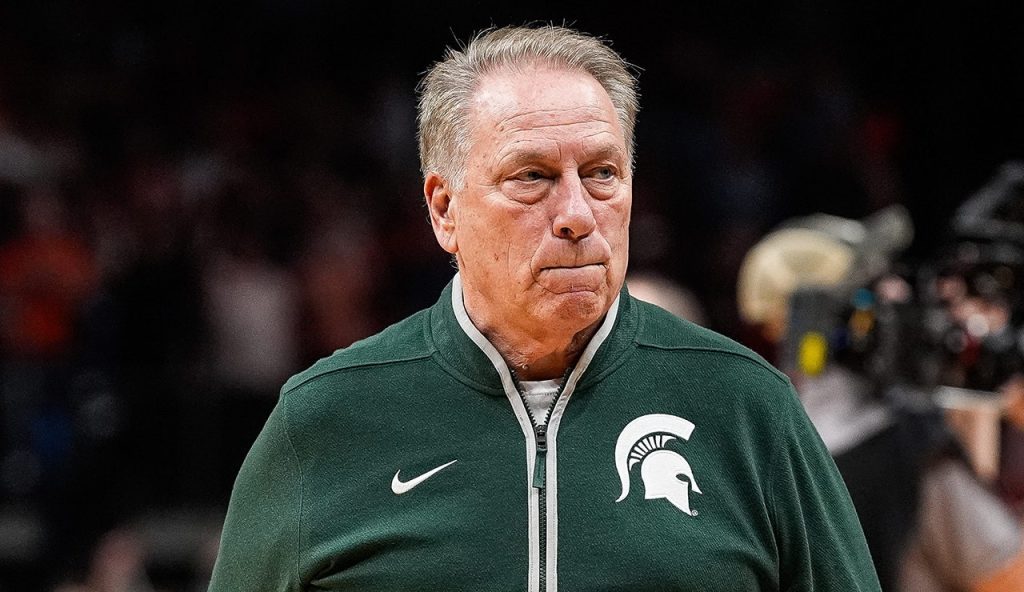Tom Izzo’s Frustration with NCAA Decision on G League Players
Michigan State men’s basketball coach Tom Izzo has voiced strong criticism of the NCAA’s recent decision to allow former NBA G League players to transition into college basketball. His passionate remarks came in response to news that Thierry Darlan, 21, and London Johnson, both former G League players, have committed to Santa Clara and Louisville respectively after spending multiple seasons in the professional development league.
In a candid media session, Izzo expressed profound disappointment with the current state of college basketball governance, stating that the sport now essentially has “no rules.” His frustration appears rooted in concern for both fairness and the impact on younger student-athletes who committed to programs under different expectations. “Someone is going to say, ‘Well, if they go pro and it doesn’t work out, they should be able to come back,'” Izzo noted. “Well, what about the freshmen you recruited there? That’s somebody’s son and he thinks he’s got himself a good place, and all of a sudden, shazam, they pull out of their hat and bring a 21- or 22-year-old in from the G League.” This situation, which Izzo characterized as “ridiculous” and “embarrassing,” highlights the tension between providing second chances for players whose professional careers didn’t develop as hoped and maintaining the integrity of commitments made to incoming freshmen.
The veteran coach’s criticism extends beyond the specific policy to what he perceives as decision-making driven by fear of litigation rather than consideration for the sport’s best interests. “Whoever made those decisions because they’re afraid that a lawyer is going to sue them, sooner or later, you’ve got to fight the fight,” Izzo emphasized. His comments reflect a broader frustration shared by many college coaches who feel marginalized in NCAA policy decisions that directly affect their programs and student-athletes. Izzo, who led the Spartans to the Elite Eight last season, made clear his continued love for coaching while expressing diminished respect for the profession under current governance conditions.
Importantly, Izzo repeatedly stressed that his criticism is directed at administrators and decision-makers rather than the players themselves. “I’m not going to be mad at the players. I’m going to be mad at the adults in the room,” he clarified. “So don’t blame the players anymore. Blame the adults that make the decisions, that allow some of these ridiculous things to happen.” This distinction demonstrates Izzo’s understanding that players are simply navigating the opportunities presented to them within the system as it exists, rather than creating the rules themselves. His comments highlight a growing disconnect between coaches’ perspectives and NCAA leadership in an era of rapidly evolving player movement and eligibility rules.
The specific cases that sparked Izzo’s comments represent a new frontier in the already complex landscape of college basketball transfers and eligibility. While players have previously been able to return to college basketball after declaring for the NBA draft (provided they maintain eligibility by not hiring agents or withdrawing by deadlines), allowing players who have actually competed in professional developmental leagues to return to college competition represents a significant policy shift. The rules now permit a player like Darlan, who averaged 4.2 points per game across 19 G League appearances, to become eligible for college competition. This creates situations where players with professional experience could potentially displace younger athletes who followed traditional recruitment paths.
Izzo’s call for the NCAA to “regroup” reflects a broader sentiment among many college basketball stakeholders that the current governance structure is struggling to balance various competing interests in the sport. The unintended consequences he references may include decreased roster stability, challenges in program building, and potential competitive imbalances between programs. As college basketball continues evolving in the NIL era with increasingly fluid movement between professional and collegiate levels, the tension between providing opportunities for athletes and maintaining some traditional aspects of college sports will likely remain a point of significant debate. Izzo’s willingness to speak candidly on these matters, even at the risk of controversy, demonstrates the deep investment many coaches have in shaping the future direction of college basketball.


